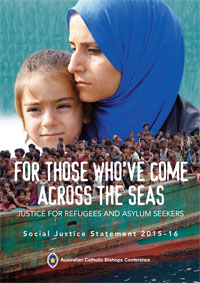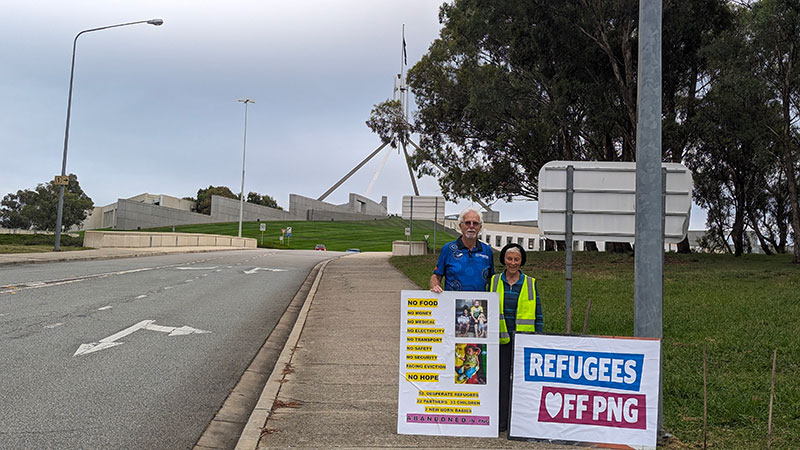For this year’s World Day of Migrants and Refugees (29 September) Pope Francis calls on us to encounter Jesus in people who flee oppression, abuse, insecurity and discrimination, and who seek our welcome and help as refugees.
He writes that, “God not only walks with his people, but also within them … (particularly) … the least, the poor and the marginalised”, hoping that Jesus will be able to say to us when the time comes that, “I was a stranger and you welcomed me” (Matthew 23 v. 35).
For more than a decade, successive Australian Governments have done the opposite - turning back people coming by boat, seeking our protection in accordance international law.
As well, thousands have been detained in Papua New Guinea and Nauru or had their claims for asylum assessed in Australia under the so called ‘fast-track’ regime that has been deemed unjust by the Australian Human Rights Commission.
Sadly, after a decade, there are still thousands of people with unresolved status:
- 8,500 people still subject to the ‘fast-track’ process living ‘temporarily’ in our community.
- 1,000 people medically evacuated from PNG and Nauru, living here on short-term visas.
- 50 people still held in PNG for 11 years and 100 on Nauru who’ve been there for up to a year.
Thousands (including most of those in PNG) are destitute and unable to work, with no access to Government support.
So how have Australian Catholics responded to the Pope’s continuing calls over the last ten years to treat these people fairly and with compassion?
 The Bishops’ 2015-16 Statement For Those Who’ve Come Across the Seas challenged us to think again about our response to people seeking asylum, especially those arriving by boat.
The Bishops’ 2015-16 Statement For Those Who’ve Come Across the Seas challenged us to think again about our response to people seeking asylum, especially those arriving by boat.
Most of these people are in our two biggest cities so Jesuit Refugee Service and House of Welcome in Sydney and the Brigidine Asylum Seeker Project in Melbourne continue working tirelessly to help them. St Vincent de Paul Society (SVdP) does similar work, mainly in the smaller cities and in some regions.
In helping those offshore, Brigidine Sister Jane Keogh AM leads Manus Lives Matter, which still supports the 50 people in PNG, others evacuated to Australia and destitute families overseas.
All this difficult work has saved many people here and offshore from suffering the full impact of Australian Government policy. But the continuing strain on the people we assist, with slight hope of finding a safe and permanent home, just gets worse. The continuing burden carried by the generous and compassionate people helping them also gets heavier with each passing day.
So, another important way to help these desperate people seeking our permanent protection is to advocate on their behalf for positive change to Government policy. The Catholic Alliance for People Seeking Asylum (CAPSA) and SVdP are two of the Catholic organisations doing this work. As a minimum, the Society believes that the only way to end this terrible situation is for the Australian Government, before the next Federal election, to do the following:
- Implement a fair process to resolve the status of all those people still subject to the ‘fast-track’ process.
- Ensure that all those held in PNG and Nauru are immediately evacuated and that they, along with the 1000 already in Australia, are resettled in safe places.
- Grant work rights to all people seeking asylum in Australia and ensure that those who aren’t able work, are provided with sufficient support to live in our community with dignity.

Until all this happens, we Catholics should continue to give, or start giving, support to organisations directly helping these vulnerable people. As well, we should approach our local Federal parliamentarians and urge them to implement the three calls above.
Tim McKenna, Chair Vincentian Refugee Network
Back to the 110th World Day of Migrants and Refugees 2024 Online Resources.

